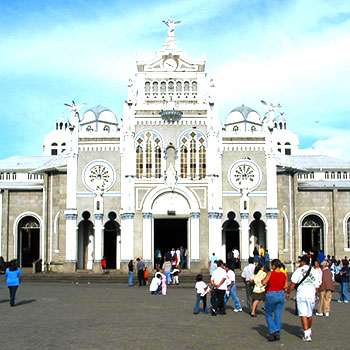PHOT 2100 Ecological Photography
Spanish Language, Liberal Arts & Environmental Sciences Program
San Jose, Costa Rica
Dates: 1/4/25 - 5/3/25

PHOT 2100 Ecological Photography
OVERVIEW
CEA CAPA Partner Institution: Veritas University
Location: San José, Costa Rica
Primary Subject Area: Photography
Instruction in: English
Course Code: PHOT 2100
Transcript Source: Partner Institution
Course Details: Level 200
Recommended Semester Credits: 4
Contact Hours: 60
Required Supplies: A DSLR (digital single-lens reflex) digital camera that has interchangeable lenses and full manual control of aperture, shutter speed, depth of field and focus functions is recommended. It should meet the following criteria: Minimum of 10 megapixels, full manual control of aperture, shutter speed, focus and flash, capability for interchangeable lenses, zoom lens (18mm-55mm) (up to 135 mm preferred), Photo tripod, Memory card.
Common 'point-and-shoot' and smartphone cameras with fixed lenses (lenses that may
DESCRIPTION
This foundation course is designed to introduce and enhance students' knowledge of the fundamentals of photography. Through exploratory and practical knowledge students will discover the importance and impact of a technical methodology within a conceptual framework to deliver effective visual communication with a viewing public. The basics of image creation will be properly understood and polished by students, who will also gain the confidence to apply their newfound knowledge to a variety of photographic circumstances and mediums. We will cover a broad range of fundamental principles, from camera control to composition and creativity. The basic photography skills that will be seen shall provide students with a foundation to grow upon, while strengthening their capabilities to take on photography projects related to their individual needs, whether practical or purely expressive, while emphasizing issues related to nature and ecology.
In addition, students will have the opportunity to explore Costa Rica?s diverse ecosystems with the goal of understanding its importance and the resources that make it unique. Terms like ?Exposure Triangle? ?Aperture, Shutter Speed & ISO? and the importance of photography in the processes of environmental conservation will be seen in the course. All the basic needs of using a camera as well as the documentation of the direct damages of development and its corresponding consumerism.
In addition, students will have the opportunity to explore Costa Rica?s diverse ecosystems with the goal of understanding its importance and the resources that make it unique. Terms like ?Exposure Triangle? ?Aperture, Shutter Speed & ISO? and the importance of photography in the processes of environmental conservation will be seen in the course. All the basic needs of using a camera as well as the documentation of the direct damages of development and its corresponding consumerism.







